News
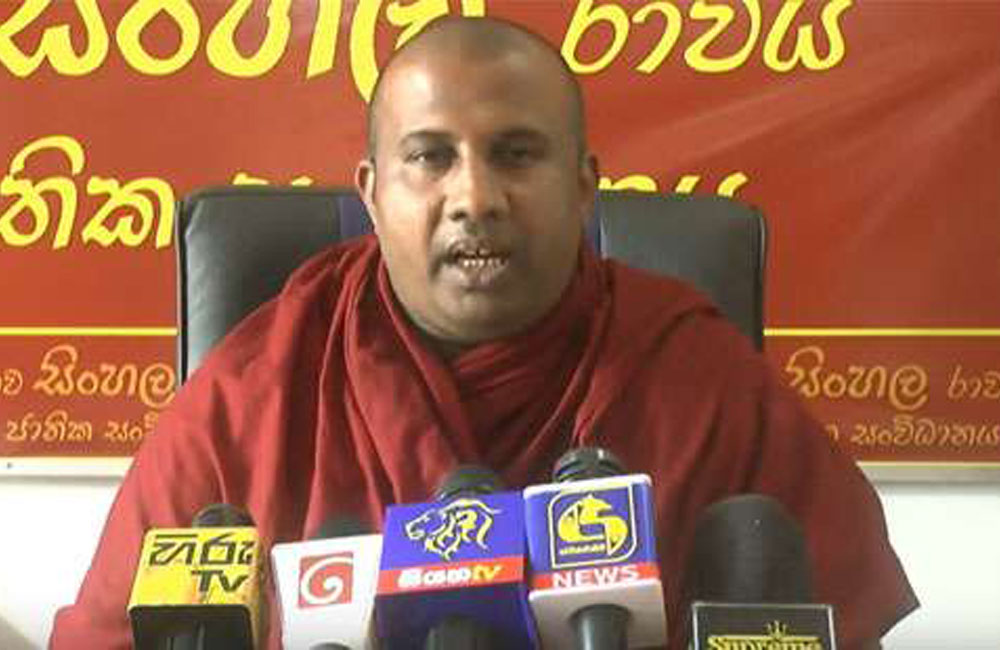
PCoI on Easter Attacks: Sinhala Ravaya says recommendations should be dumped in a trash can
The General Secretary of the 'Nava Sinhala Ravaya' organisation, Ven. Magalakande Sudaththa Thero said that the Presidential Commission of Inquiry (PCoI) to probe the Easter attacks has failed to institute charges against the two officials of the Attorney General's Department who had concealed information pertaining to Zahran Hashim.
Ven. Sudaththa Thero said that instead, the Commission has targeted the Bodu Bala Sena organisation and has recommended taking action against its General Secretary Ven. Galaboda Aththe Gnanasara Thero.
The PCoI assigned blame to the Sinhala Buddhist nationalist organisation for having contributed to the events that led to the attacks and recommended to ban the BBS.
"I would like to ask the PCoI whether the bombings occured as a result of the statements made by Gnanasara Thero or because they concealed a file in 2017 that contained information regarding Zahran," Sudaththa Thero said.
He pointed out that no action had been taken against the politicians who had direct or indirect links with Zahran and that there were no recommendations against those who had provided political and financial support to Zahran.
Ven. Sudaththa Thero requested the President to disregard the recommendations submitted by the PCoI and to allow the CID to conduct further investigations.
Video:
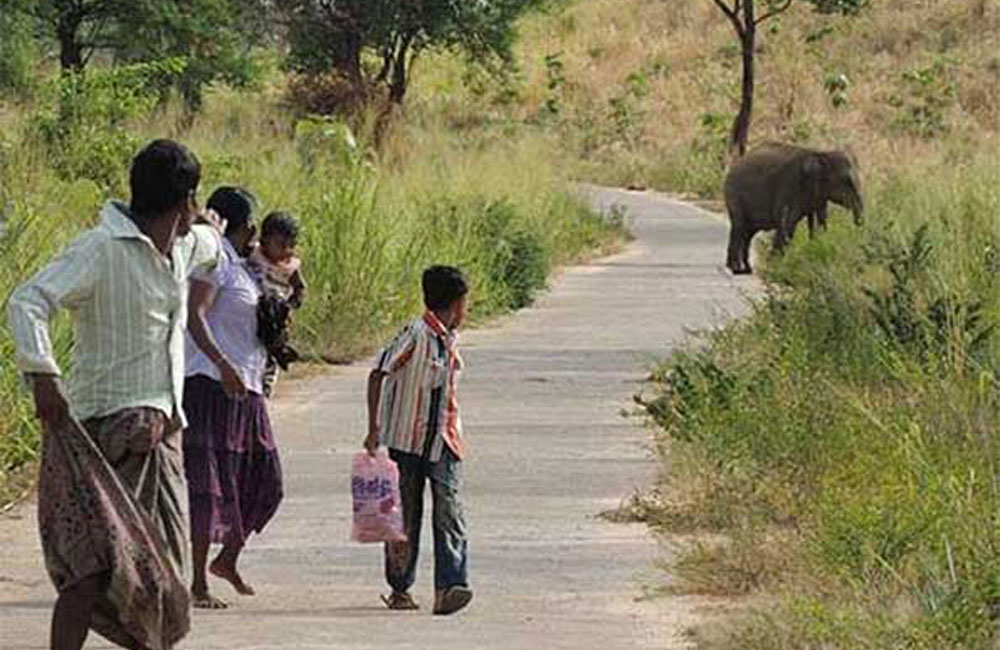
Government hell bent on elephant management
The government is now hell bent over the management of wild elephants with the escalation of human elephant conflict on remote rural areas countrywide, official sources said.
The Cabinet of Ministers on Tuesday (Feb. 23) granted their consent for the combined resolution to publish the government gazette for the proposed Wild Elephant Management Reserve in Hambantota.
The combined resolution was tabled by the Minister of Irrigation and the Minister of Wildlife and Forest Conservation.
Due to the accelerated development projects undergoing within the district of Hambantota, the habitats and wildlife corridors of wild elephants and other wildlife are being severely affected.
Accordingly, a land in extent of 23,746.55 hectares belonged to the Department of Forest Conservation and Mahaweli Authority of Sri Lanka has been identified for the proposed reserve.
The Cabinet of Ministers granted their consent for the combined resolution to publish the government gazette subsequent to obtaining the agreement of the Legal Draftsman.
For the 37th day, farmers in Walsapugala are engaged in a Satyagraha Campaign demanding the Proposed Wild Elephant Management Reserve in Hambantota, be included in the government gazette.
On the 18th of January, multiple agrarian organisations including the Joint Agrarian Movement of the Walawa Left Bank launched a Satyagraha Campaign and three days later, they ventured into a fast unto death campaign, as their demands were not met.
Two days after the fast unto death campaign was launched, two farmers were hospitalized.
The fast unto death campaign was called off on the 23rd of January, only after promised the farmers to solve the issue within a month.
On Monday, the 22nd of February, farmers staging the Satyagraha Campaign called on Prime Minister Mahinda Rajapaksa, together with Ven. Battaramulle Seelarathana Thero.
However, according to the farmers, a solution is yet to be provided to the issue.
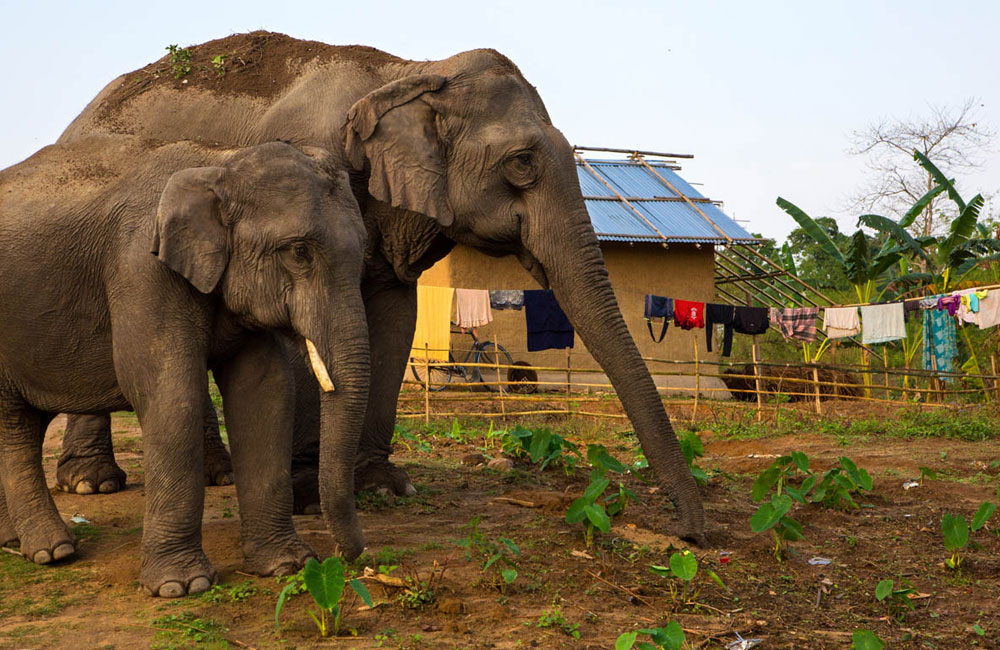
COPA calls for action plan within two months to resolve human-elephant conflict
The Committee on Public Accounts (COPA) directed the Secretary to the Ministry of Wildlife and Forest Conservation and its respective officials to prepare a formal plan in order to expedite the implementation of the recommendations made to resolve the human-elephant conflict which is now a grave concern in Sri Lanka. Accordingly, the COPA committee directed for a report to be submitted to Parliament within two months.
In addition to the report containing the recommendations of the special committee chaired by Dr. Prithiviraj Fernando to find a solution to the existing human-elephant conflict, which has already been submitted to the President, the COPA committee also called for a review of the National Policy on the Resolution of the Elephant-Human Conflict in 2006 by a panel of experts when preparing the formal plan.
The COPA Committee which was held on the 9th of December 2020, disclosed that Sri Lanka has become a country with the highest number of elephant deaths in the world due to the human-elephant conflict.
It was also revealed that Sri Lanka has the second highest number of reported human deaths in the world as a result of the ongoing human-elephant conflict. Therefore, the Committee stressed the need for immediate action with regard to the said concern.
State Ministers Dr. Sudarshini Fernandopulle, Lasantha Alagiyawanna, and MPs Cader Mastan, Dr. Upul Galappaththi, Weerasumana Weerasinghe, Niroshan Perera, B.Y.G. Ratnaseker were also present at the COPA meeting that was chaired by Prof. Tissa Vitharana.
It was pointed out that the Department of Wildlife Conservation cannot be entirely burdened with the responsibility as recommended by the report containing the recommendations of the special committee submitted to the President.
It was also emphasized that the construction and maintenance of electric fences should be carried out under the collaborative efforts of the relevant Divisional Secretariats,Agrarian Services Department and the Mahaweli Authority.
The recommendations also contain proposals pertaining to a Community based village electric fence and an alternative electrical fencing system only applicable during the periods of cultivation. Dr. Prithiviraj Fernando, an expert in research and experience governing the human – elephant conflict, pointed out that traditional methods of chasing elephants, which is currently in operation, have failed for nearly 50 years.
The committee observed that there are areas with elephant fences which are successfully being implemented with the contribution of the community and the respective local stakeholders, and thus this problem can be minimized by adopting such successful methods in other areas as well.
Officials of the Department of Wildlife Conservation said that programs such as the construction of elephant fences, elephant proof trench digging, building beehives to deter elephants from raiding crops being implemented.
While highlighting that the total number of employees in the Department of Wildlife Conservation is close to 1500, it was disclosed that there are many problems when working at the ground level as there is only a very limited number of employees to work on the fencing process.
It was also discussed that there are reports of villagers in some areas refusing to build the fence as it disrupts the boundary of their land and that in some areas there have been reports of theft of the batteries used for the electric fence.
However, the committee emphasized that by educating them the villagers, they too should be involved in the active contribution to the issues including the fencing process. The committee also called for the immediate revival of community organizations such as ‘Gajamithuro’, which are currently inactive.
The committee also pointed out that the contribution of all relevant Divisional Secretariats, Grama Niladharis and other stakeholders should be sought for this purpose and highlighted the importance of working more closely with the village community. Related News:
https://english.newstube.lk/news/5100-government-hell-bent-on-elephant-management
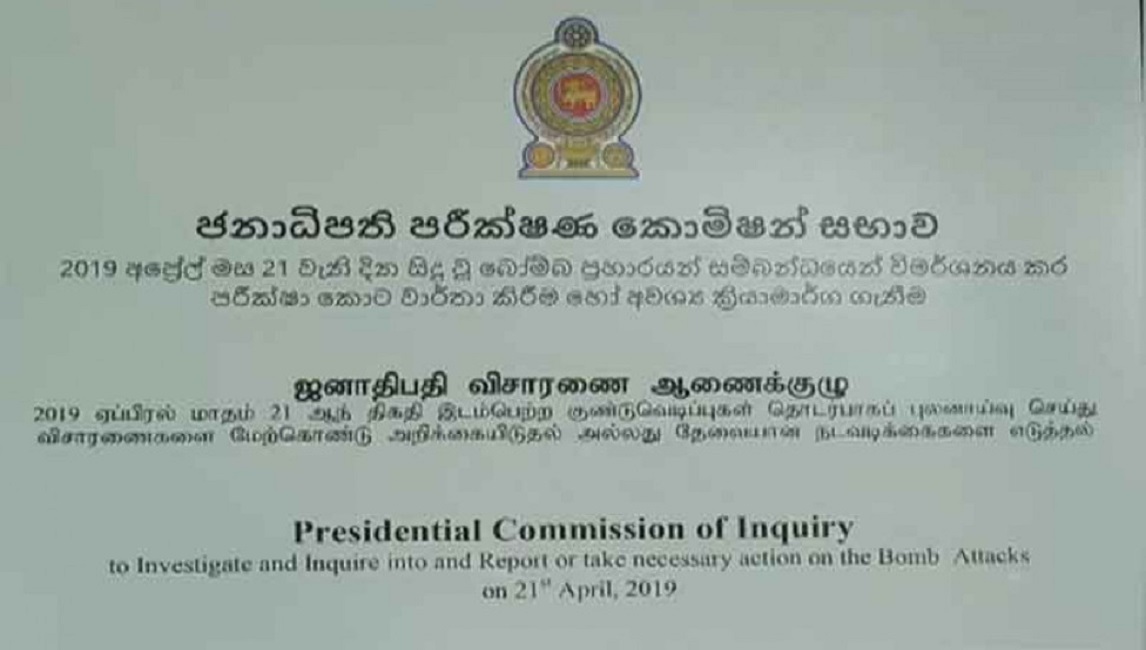
Wide ranging mandate for Committee appointed to study the Report on Easter Sunday attacks
The six-member Committee appointed by President Gotabaya Rajapaksa to study the Report of the Presidential Commission of Inquiry (PCoI) into Easter Sunday attacks has been entrusted with a wide ranging mandate, the Presidential Secretariat announced.
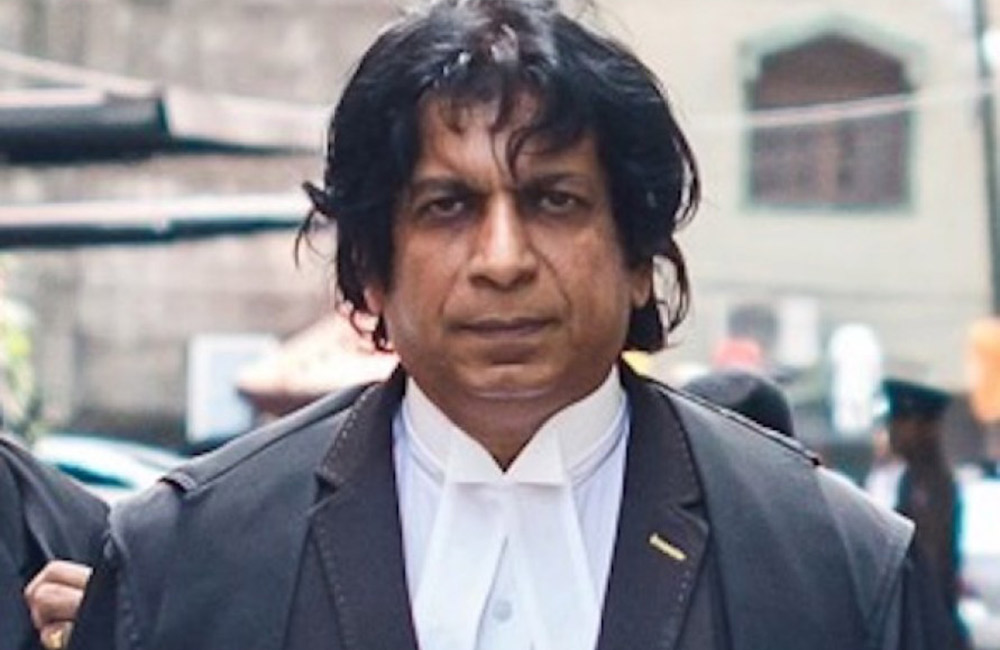
PCoI report on Easter Sunday attacks now with the AG creates controversy
The final report of the Presidential Commission of Inquiry (PCoI) to investigate and inquire into the Easter Sunday attacks that was presented to President Gotabaya Rajapaksa has been handed over to Attorney General Dappula De Livera.
The report was handed over by the Director Department General - Legal Affairs of the Presidential Secretariat, Hariguptha Rohanadheera, at the Attorney General's Department today (25).
Attorney General Dappula de Livera is not bound by recommendations made by the Presidential Commission of Inquiry (PCoI) into the 2019 Easter Sunday carnage, or presidential directives in that regard, according to authoritative sources.
They said that the AG couldn’t under any circumstances initiate legal proceedings until he had received the full PCoI report.
Sources pointed out that due to the inordinate delay in sharing the PCoI report with the AG, the department hadn’t been able to take preliminary measures required to initiate the proceedings.
Sources said that a team of officers would take at least six weeks or more to examine the report before tangible measures could be taken.
With the AG scheduled to retire on May 24, 2021, even if the AG's Department received the PCoI, it would be quite a tough task to initiate proceedings ahead of retirement, sources said.
Meanwhile, former President Maithripala Sirisena is currently holding discussions with his lawyers in line with the recommendations made by the final report of the Presidential Commission of Inquiry into the Easter Sunday attacks in 2019, Environment Minister Mahinda Amaraweera said.
However, Amaraweera said he is dissatisfied with the outcome of the PCoI, adding that apart from recommending the perpetrators should be punished, the PCoI had to reveal the mastermind of the bombings and the connection with the bombers.
“We expected the PCoI to reveal the mastermind of the attacks and how they were funded with the help of some big shots. We thought those facts will be revealed but the final output of the commission was to charge the former administration,” he noted.
Speaking further, he said that recently it was revealed that 15 women were trained and some are still alive, which could jeopardise national security.
“More than recommending punishing the perpetrators, we expected much bigger revelations from the report,” he concluded.
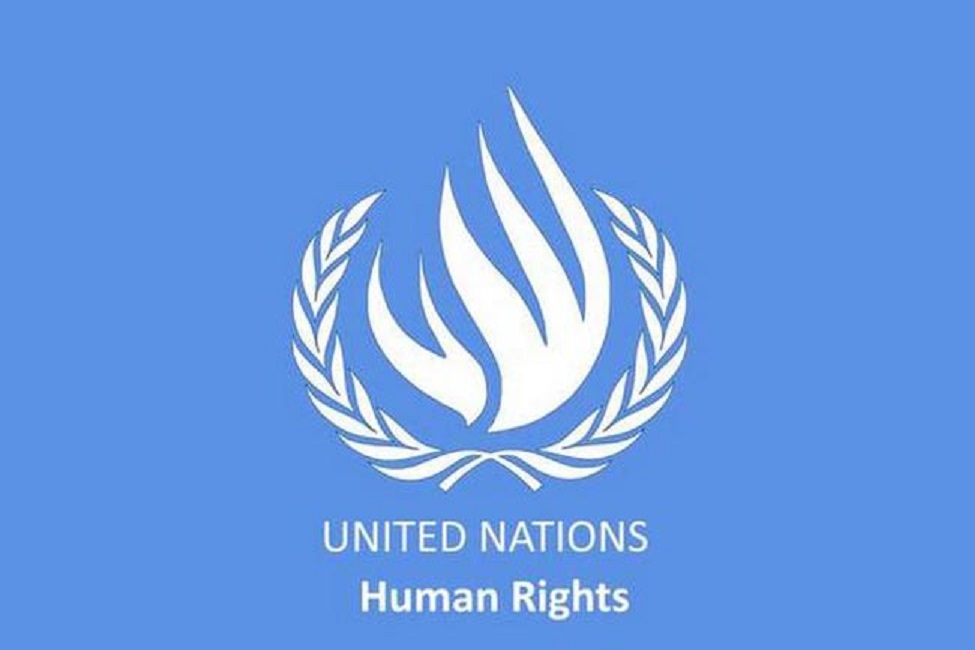
First draft of the resolution on Sri Lanka is tabled at the UNHRC session in Geneva
The first draft (zero draft) of the resolution on Sri Lanka to be tabled at the UN Human Rights Council (UNHRC) in Geneva calls on the Office of the High Commissioner for Human Rights to enhance its monitoring and reporting on the human rights situation in Sri Lanka.
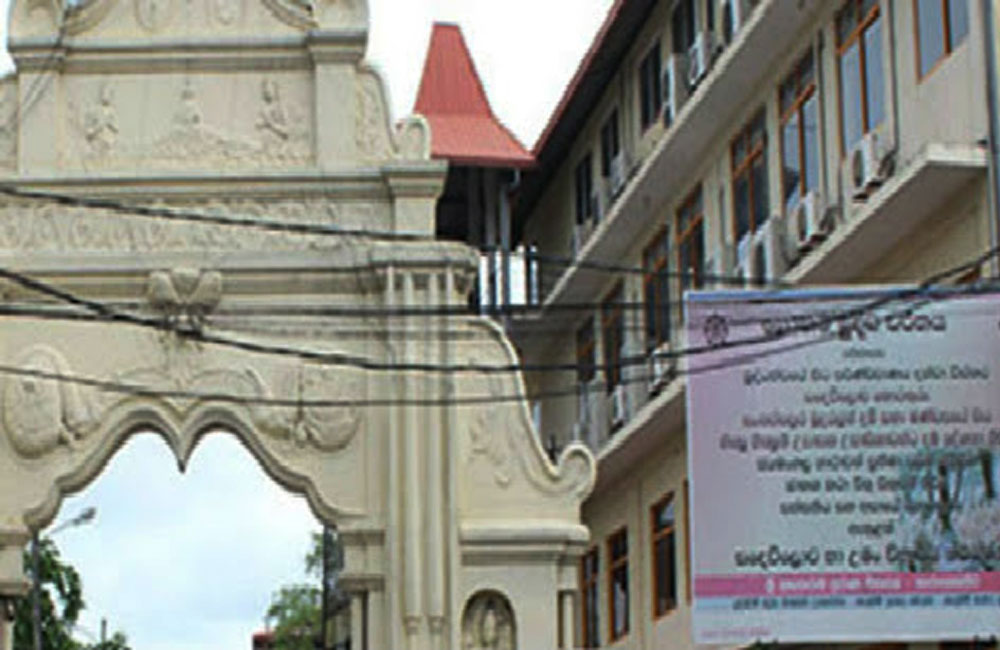
Meeting at Abhayarama: Maha Sangha stress the need to politically empower the President
Pro-government monks have stressed the need to consolidate political power around President Gotabaya Rajapaksa.
The Maha Sangha reiterated this stance at a meeting held with a group of party leaders led by Industries Minister Wimal Weerawansa. The party leaders were summoned for a meeting at the Abhayarama Temple yesterday (24).
Speaking to reporters after the meeting, Energy Minister Udaya Gammanpila said that political analysts have revealed how certain external elements have created challenges pertaining to the internal affairs of the government.
He said that the President should be supported at all times to ensure that the government can face these challenges head on.
"Leaders of 8 parties convened at the Abhayarama Temple under the patronage of Venerable Muruththettuwe Ananda Thero together with a group of Nayaka Theros. They discussed the challenges the current government is facing. It was an open dialogue where we discussed our future course of action. These are internal matters," he said.
Minister Wimal Weerawansa said that the Maha Sangha had pointed out the importance of politically empowering the President as the Head of State.
Minister Vasudeva Nanayakkara speaking to reporters after the meeting said: "the Chief Incumbent of the Abhayarama Temple Venerable Muruththettuwe Ananda Thero sent me a message asking me to come to the temple in the evening. I didn't ask why. After we arrived, he inquired about the current state of affairs of the government. It was just a query."
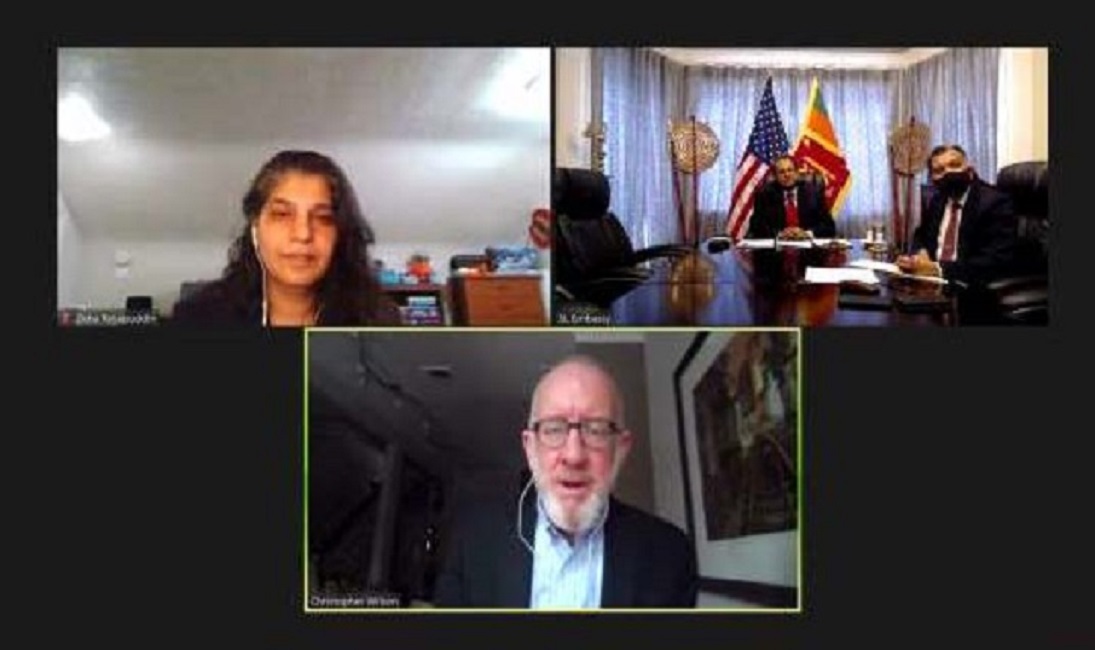
US - Sri Lanka discuss avenues to increase bilateral trade and investment
The United States is ready to expand the trade and investment potential with Sri Lanka agreeing to explore modalities in increasing in products that could benefit from GSP facility .
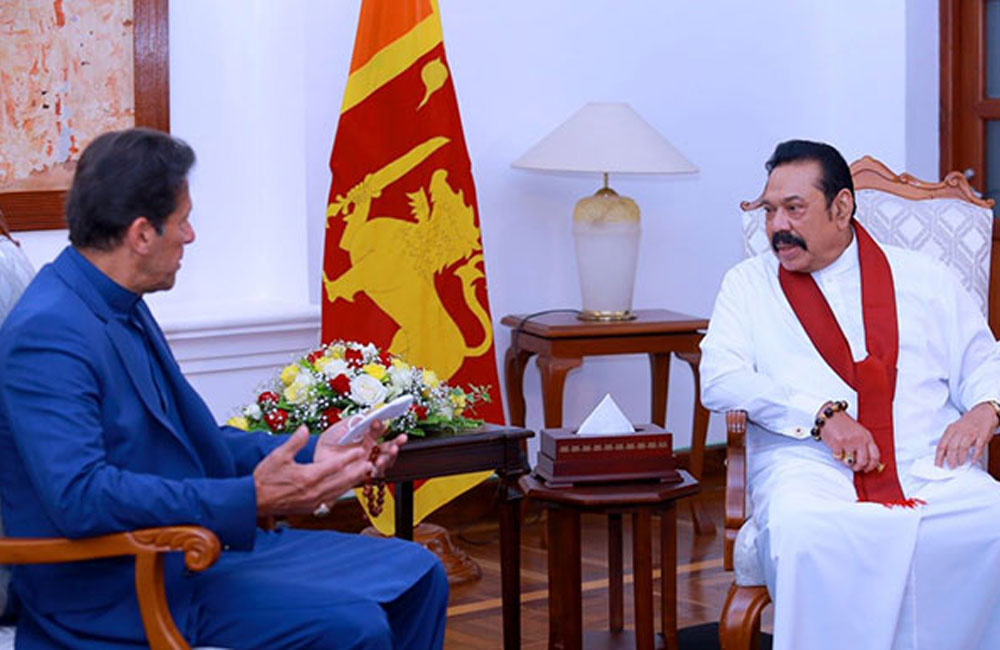
Sri Lanka and Pakistan pledge to work on negotiating debt relief
Sri Lanka and Pakistan have agreed to jointly work on negotiating debt relief, Pakistan Prime Minister Imran Khan said yesterday, calling on international organisations to support poor countries to tackle economic challenges worsened by the pandemic.
Khan, who arrived in SL last afternoon for a two-day visit, was welcomed by his Sri Lankan counterpart Mahinda Rajapaksa at the Bandaranaike International Airport on Tuesday (23).
The two Prime Ministers held bilateral discussions at Temple Trees and issued a joint statement to the media following their meeting. Khan also invited Rajapaksa to visit Pakistan.
“The two leaders discussed how the developed countries can help the developing world. The developed world should not be insular, they must realise this is a problem that has affected everyone, but specifically it has hit the poor countries more and poor in the poor countries much more. So, we have discussed how we can jointly work on poor countries getting debt relief,” Pakistan Premier Imran Khan told reporters.
He pointed out that even though Pakistan came up with the biggest stimulus package in its history of USD 8 billion, it was minute compared to the US package of nearly USD 3 trillion.
“So, this is the discrepancy. The coronavirus has exposed this huge disparity in the world and that is why I feel global organisations like the UN should step in and look after the countries that have taken a real beating because of COVID-19,” he said.
Pointing out that both Sri Lanka and Pakistan were part of the Belt and Road Initiative (BRI), he encouraged stronger trade between the two countries as it would give Sri Lanka connectivity to Central Asia via the China-Pakistan Economic Corridor (CPEC).
The two countries also inked five Memorandums of Understanding (MoUs) targeted at improving bilateral economic and social cooperation.
Prime Minister Mahinda Rajapaksa said that during bilateral discussions, Prime Minister Khan agreed to work closely to enhance bilateral cooperation in the economic sector and several other areas including trade, investment, science and technology, defence and education.
Prime Minister Mahinda Rajapaksa said that the two countries also agreed to pursue opportunities within the Sri Lanka-Pakistan Free Trade Agreement (FTA).
The talks also focused on important regional and international issues as well as the impact of the COVID-19 pandemic. Both countries also agreed to further engagement in the tourism and aviation sectors.
"Sri Lanka is grateful to Pakistan for opening travel corridors to visit ancient Buddhist heritage sites in Pakistan,” Prime Minister Mahinda Rajapaksa added.
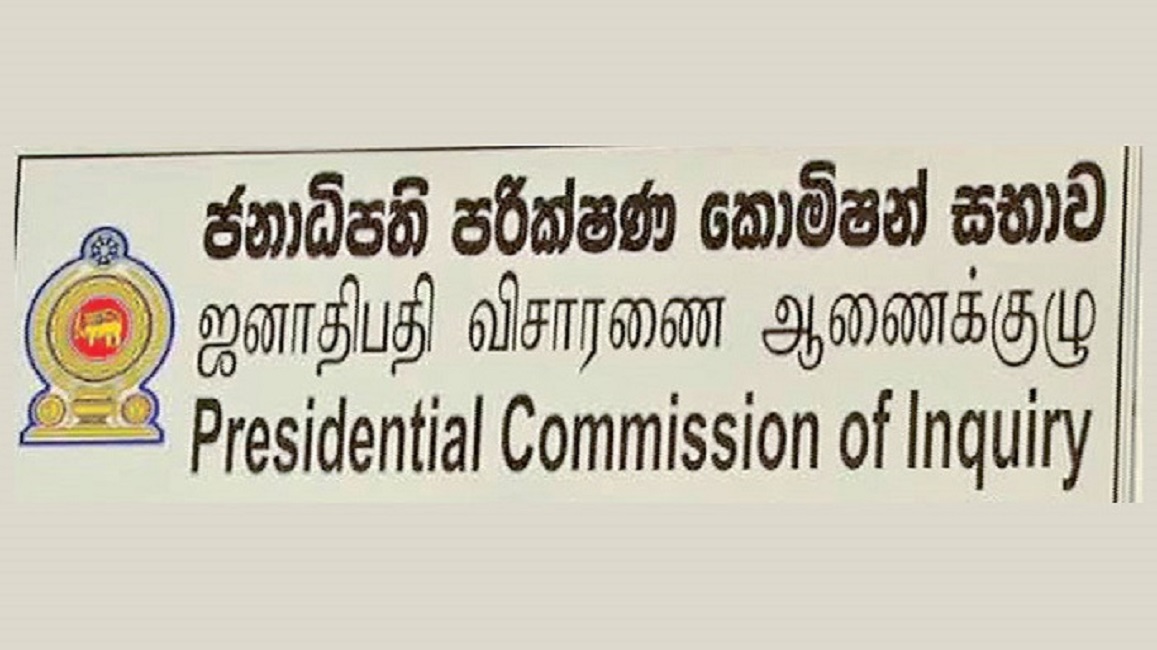
Political Victimisation: Member of PCoI resigns amidst opposition pressure
With mouniting criticism from both the opposition and civil society alike, one of the members of the three-member Special Presidential Commission of Inquiry (PCoI) appointed by President Gotabaya Rajapaksa recently to deal with charges of political victimisation by those in the previous regime has resigned.
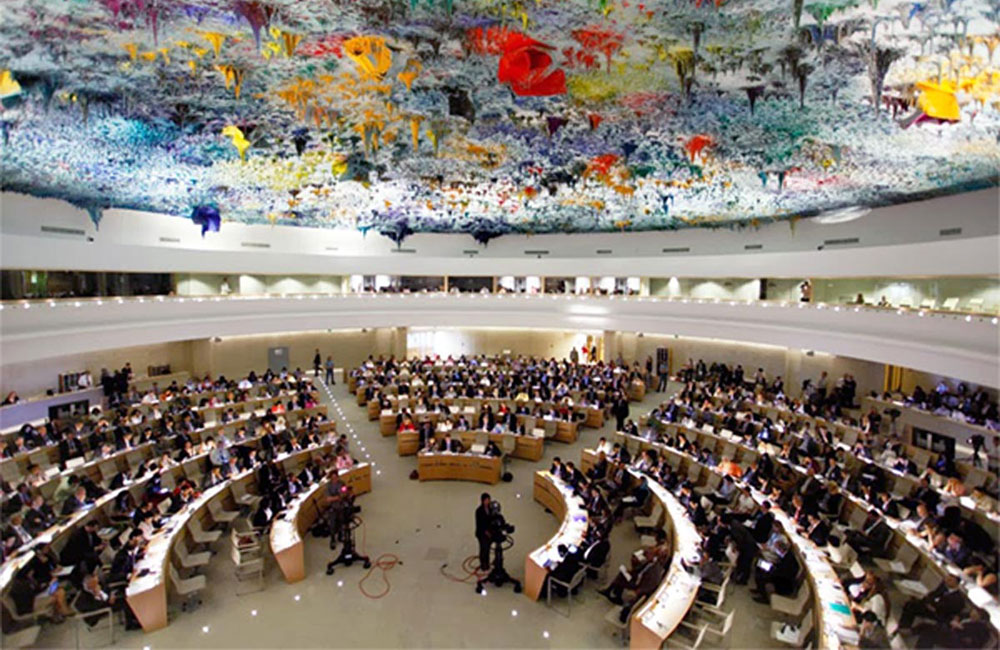
UNHRC urged for a prompt probe and trial on HR violations in Sri Lanka
The first draft resolution against Sri Lanka presented at the UNHRC sessions in Geneva has suggested a prompt investigation against the island nation demanding legal action against perpetrators of human rights violations.
The Core Group on Sri Lanka tabled the draft resolution at the UN Human Rights Council (UNHRC) in Geneva, a UN spokesperson said.
Resolution HRC_46_L.1 titled ‘promoting reconciliation, accountability and human rights in Sri Lanka’ was tabled on Monday, UNHRC spokesman Rolando Gómez said.
The resolution was tabled by the Core Group on Sri Lanka to ensure the prompt, thorough and impartial investigation.
It has recommended prosecution, if warranted, of all allegations of gross human rights violations and serious violations of international humanitarian law including for longstanding emblematic cases.
It also requests the Office of the High Commissioner to enhance its monitoring and reporting on the human rights situation in Sri Lanka, including progress on reconciliation and accountability.
The resolutions called on the UN authorities to present a written update to the Human Rights Council at its forty-ninth session, and a comprehensive report including further options for advancing accountability at its fifty-first session, both to be discussed in interactive dialogues.
Mr.Gomez said that this was the first resolution to be tabled at the ongoing 46th Session of the UNHRC in Geneva.
“This is the first of many that we expect to see to be tabled over the coming weeks,” he said.
He said that all resolutions will be considered on the 22nd and 23rd of March, the last two days of the 46th Session.
Gómez also said that the UN High Commissioner for Human Rights Michelle Bachelet will table a report on Sri Lanka today (24) at the Council following which the country concerned will respond.
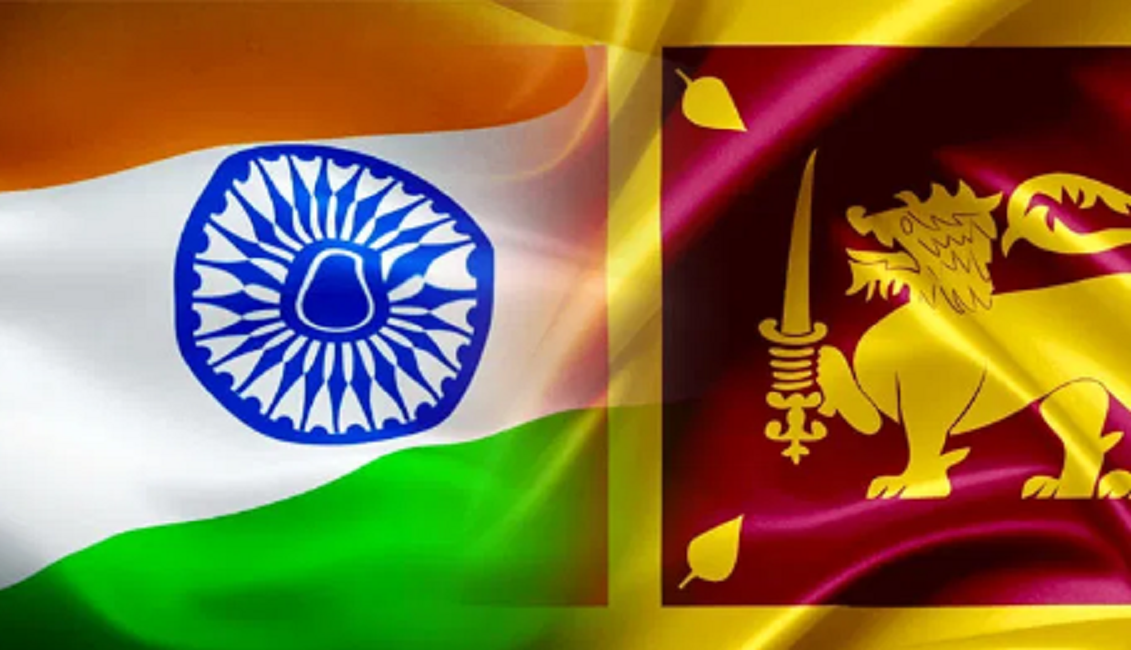
India reserves its response on request for support at UNHRC sessions
Sri Lanka’s government representatives are to face and defend allegations on human rights violations and past grave abuses at the upcoming 4hth session of the United Nations Human Rights Council, beginning Monday (February 22), official sources said.
Page 240 of 533